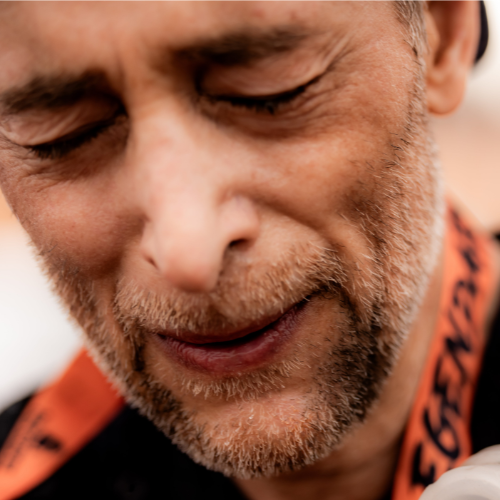It has been one week since completing the Marathon des Sables (MDS), a 250KM, 6-day running event through the Sahara Desert of Morocco. It’s almost a dream to reflect on that expedition as the experience was truly otherworldly. I had been planning for the event for almost a year when my wife challenged me to live without regrets. To finally experience it was a culmination of so much effort and anticipation. For those not familiar with the MDS, it is an iconic event that started 39 years ago by Patrick Bauer, a french citizen, who embarked on a 12-day, 350km solo trek across the Sahara carrying all of his own supplies. His experience inspired him to create an event for others who were motivated to face this type of physical and mental challenge. The first event took place in 1986 with 23 competitors. Last week, over 900 participants came together from approximately 60 countries to compete and complete. It was a dream to be able to participate and I am extremely grateful.
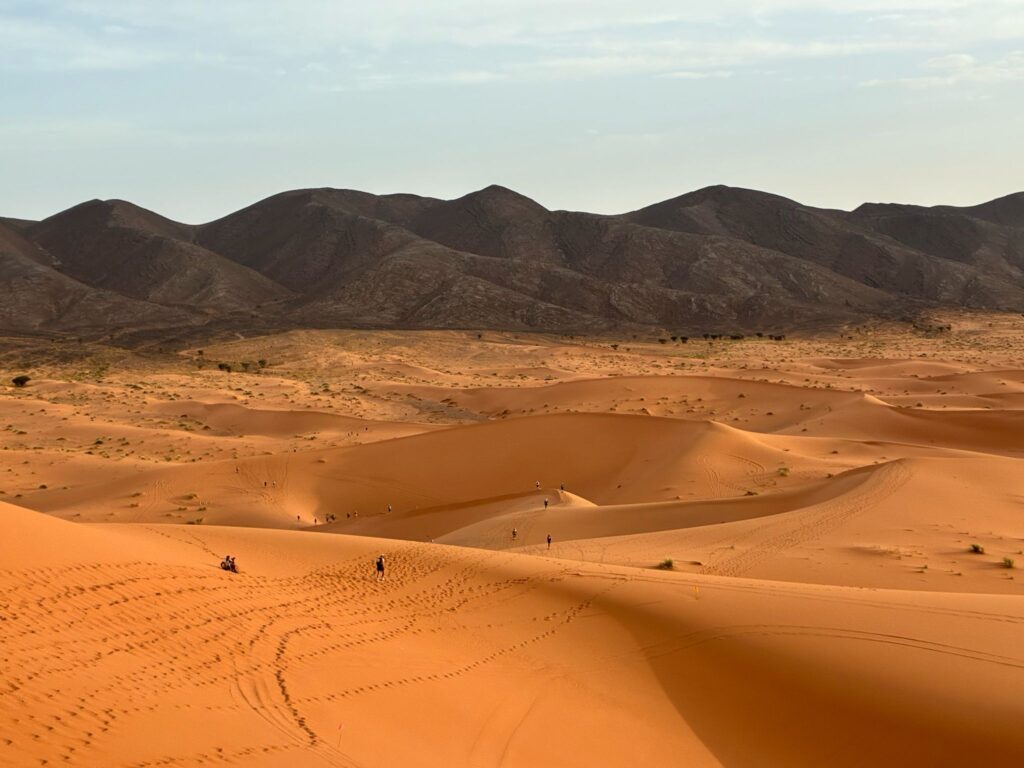
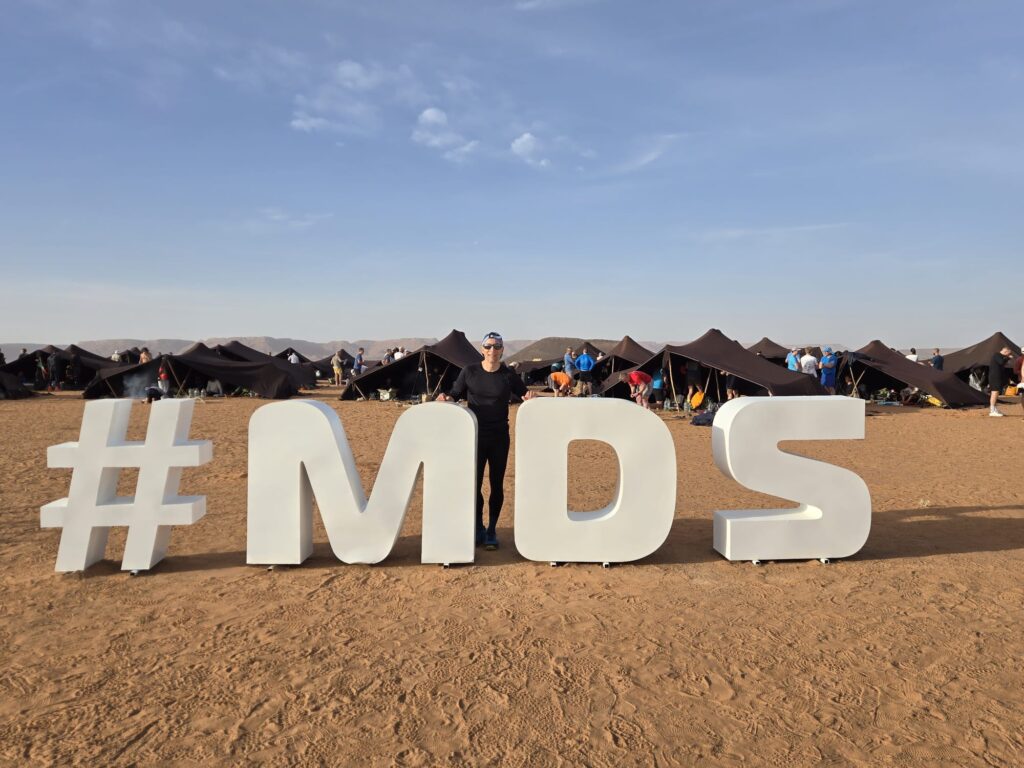
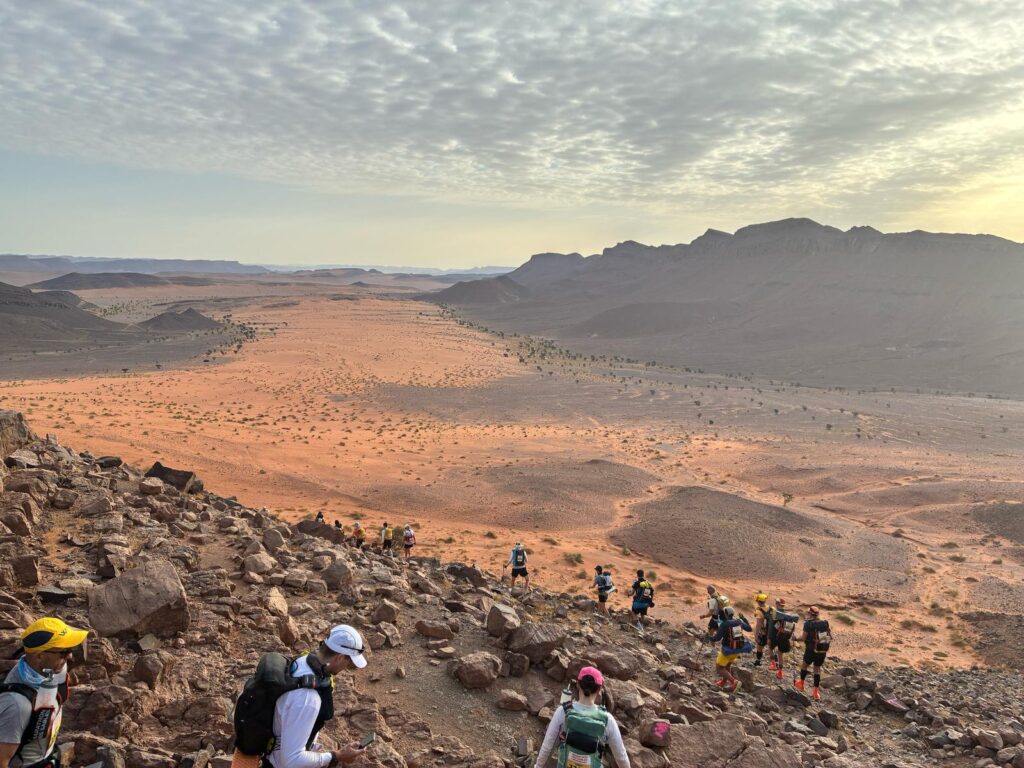
What makes the MDS such a unique and difficult event is that participants are self-sufficient. Aside from an open Berber tent shelter, water, and access to medical care, everyone is required to carry all of their own food and supplies during the entire race. Aside from the challenge of the run itself, the effort of carrying a pretty heavy pack during a run adds a whole other dimension of growth, learning and challenge. I have run ultramarathons and am familiar with the arc of emotions laid bare over a 30+ hour run. However, this was the first time I had endured a multi-day expedition and had to contend with so many other variables (weight, heat, sand) that were relentless in their effort to thwart my success.
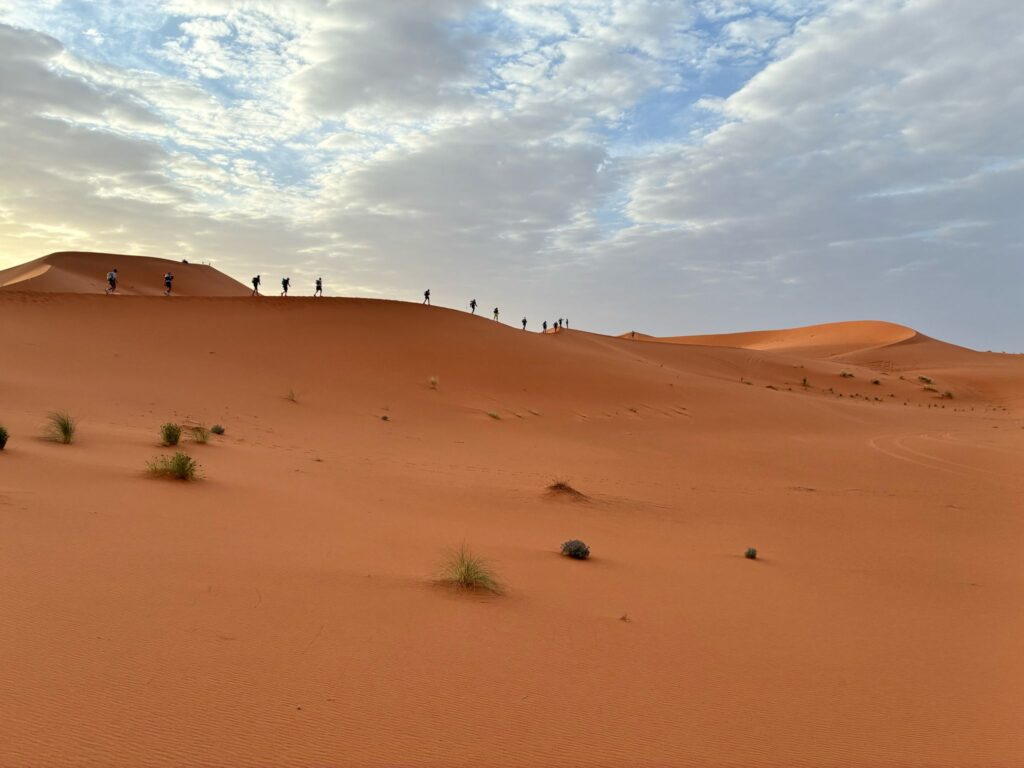
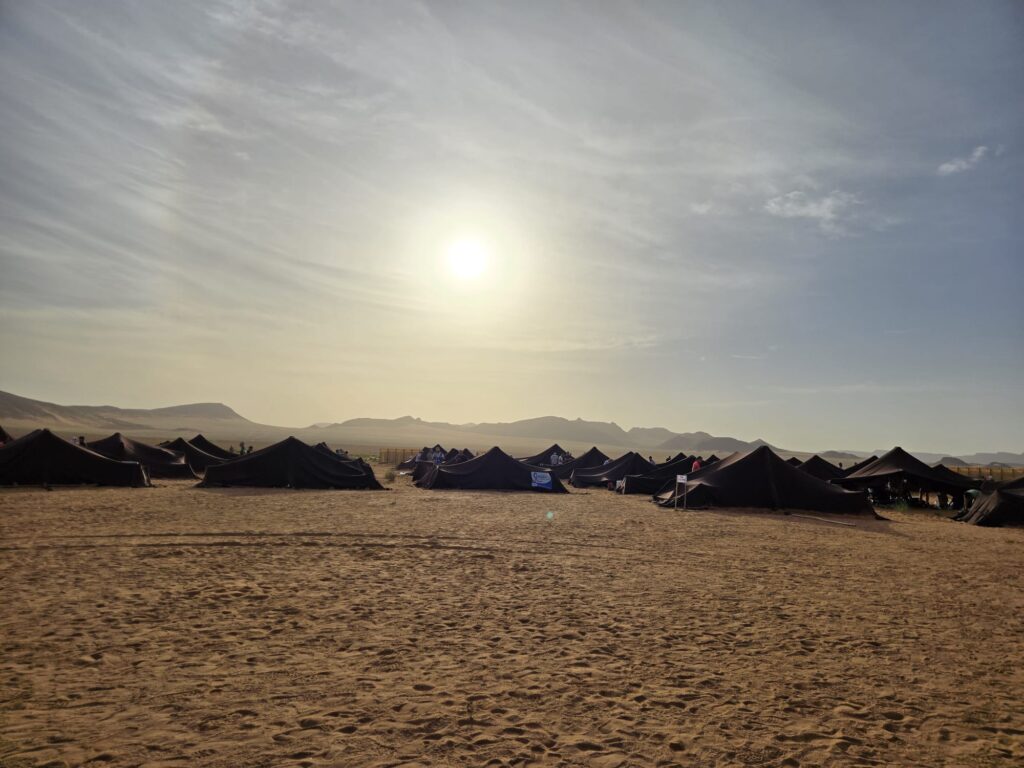
The short version of my experience at the MDS is that I finished, placing 109th overall in a time of just over 33 hours of running. Over 6 stages, we traversed sand dunes, rocky plains, dry riverbeds, mountain passes, and salt plains. The distances daily ranged from a half-marathon distance to 50 miles. But the real learning from the MDS does not lie in the running. In fact, I would characterize the MDS as a life recalibration that also included some running. It is built to not only experience the moment but to carry with you a sense of introspection about life design that extends well beyond the finish line. Therein lies the magic of an event like the MDS. In the day-to-day that often lacks “newness”, time goes fast. But when you can find wonder and curiosity through new experiences, time slows down. That time advantage is the invitation to grow as a person. Here is some reflection on that growth, being one week back into the mix of the day-to-day.
1. The Tension Between Aspiration and Self-Protection
“Am I playing to win or playing not to lose?“
For big challenges, I’m not proud of it, but I will often go into them with a “play not to lose” orientation. It’s not what I want, but a lot of my work in life has been unpacking that desire for self-protection. I tell myself that I would rather finish a 100-mile race in the middle of the pack than go for a top 10% finish and risk DNF’ing (Did Not Finish). MDS reminded me that the way to build a stronger body and mind is to “play to win”. Over the course of the stages, I started figuring out my formula. I dialed in my nutrition and hydration. I got faster. My confidence was building. I moved from a fear of loss to a desire to push. It was a powerful reminder that I can win in the arena. Just finishing might have been downside protection but my true aspiration was to compete. So get out there and compete dammit!
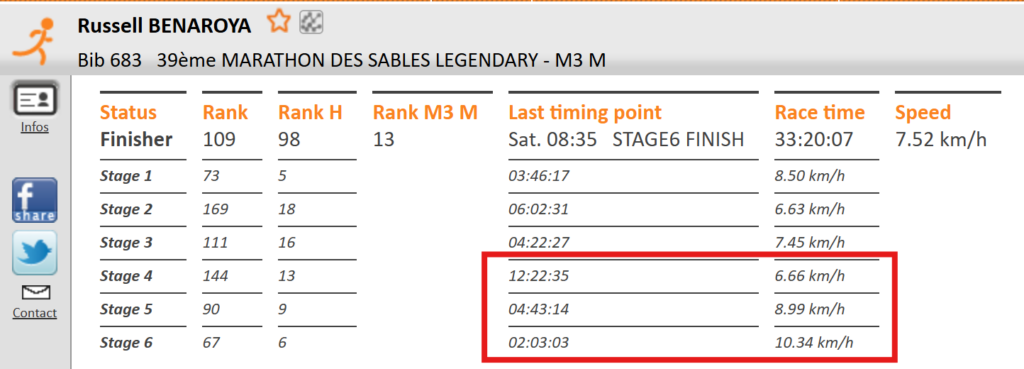
2. The Freedom in Simplicity
“Having fewer ‘things’ created more efficiency and effectiveness.”
After we arrived at the starting line, we had a day to sort out our belongings and clear the medical and gear checks. I was laboring over whether or not to keep my phone for pictures during the event. I didn’t want to “miss the moment”. But I am in the moment and isn’t that enough? At the last minute, before we checked in our suitcases to pick up at the end of the race, I turned off my phone and stuffed it inside. I was completely disconnected for the race. I talked the talk about wanting to maintain simplicity, and now, without a phone or a stove to heat water, I was going to live it. Letting go of technology, gear, and even comfort (like a stove) created a profound sense of liberation. I found joy and power in minimalism. If I have 100 units of energy to burn a day, I didn’t want to spend it worrying about battery life. Presence requires letting go of those things designed to distract you from it.
3. Connection in Solitude
“Those were the purest of connections, when nothing needed to be said, but everything was communicated.”
A race like the Marathon Des Sables is a very personal experience. Everyone came to it with their own purpose. While there were 900 competitors, most of one’s energy went toward self-management (physical and mental). That’s not to say that small, intimate circles of friendship didn’t flourish. I was in a bivouac tent with 7 other extraordinary human beings that I believe will be life long friends. That said, the most powerful connections happened on the trail, not with words (many times we didn’t speak the same language), but with looks of encouragement, fists raised as warriors, and quiet moments navigating through the dunes. Those were the purest connections, where nothing needed to be said, but everything was communicated.

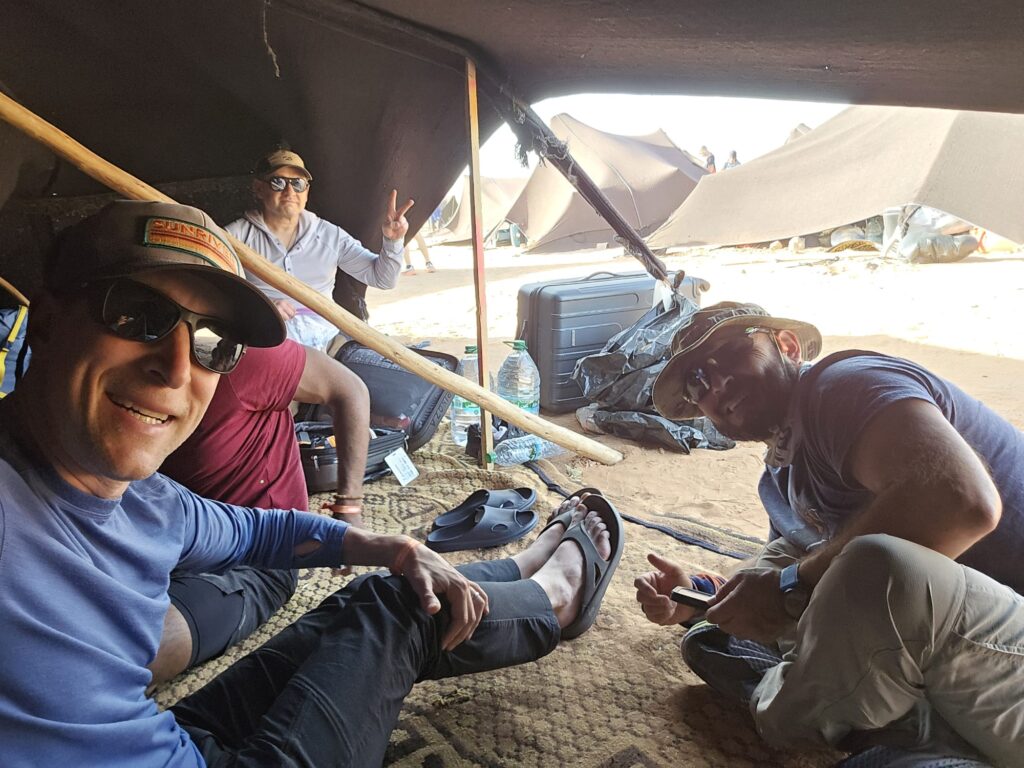
4. Being the Leaf — Presence Over Control
“I tried not to get too curious about what was coming next and stay in the moment of what I could control.”
I do like Strava, the app that captures running statistics and allows you to share them with friends and followers. But wow, I really learned to love turning off all the tech and just being in the moment. I wore a wristwatch but I didn’t measure a thing (other than the current time). I didn’t know when I’d hit a checkpoint, or how far I’d run or how much longer I had to go. I resisted the pull of always looking ahead and just focused on staying in the moment. About six months prior, I was working with a business coach and we were sitting on a bench watching a leaf running down a stream. He shared that the leaf, without having to do anything is in motion, moving with the water. “You don’t always have to be in control,” he shared with me. “Just be the leaf and look how much progress is made”. My theme for the MDS was to #betheleaf. Could I let the experience take me and just let the energy pull me forward? Could I let go of control of “what’s next” and stay present? It was a mighty test and I had to remind myself about 100 times when I began to anxious, tired, angry, or sad, to just “be the leaf”.
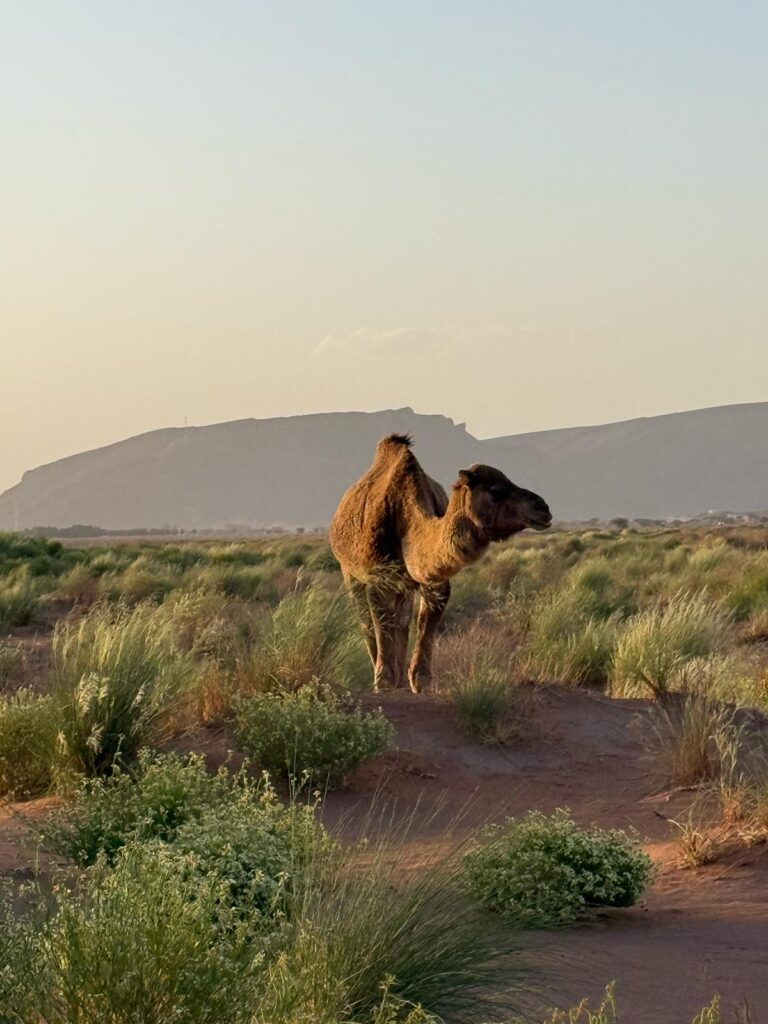
5. Judging You, Judging Me
“What we judge in others usually reveals something unresolved in ourselves.”
I’m not going to lie, I was a little dubious of the range of participants at the MDS. The event accommodates both completers (those who just want to finish and may walk a majority of the time) and competers (those who are trying to run/race the event). The cutoff times for participants is extremely generous, so if you have the will to finish, you won’t be disqualified because you ran out of time. The judgmental me questioned how bad ass this event could really be if “anyone could do it”. I was wrong, 100% wrong. The will and perseverance of all participants to stay on the trail for however long it takes to finish a stage was nothing short of an incredible display of humanity. It was those participants who came in toward the latter part of the stage that captured the true essence of what it meant to be an MDS Legend. Their stories were riveting. Their faces displayed a depth of determination, exhaustion, appreciation and emotion that brought tears to my eyes. I was disappointed in myself for judging others. We are all running our own races at our own pace. Maybe we judge others not because we see them clearly, but because we haven’t clearly seen ourselves.
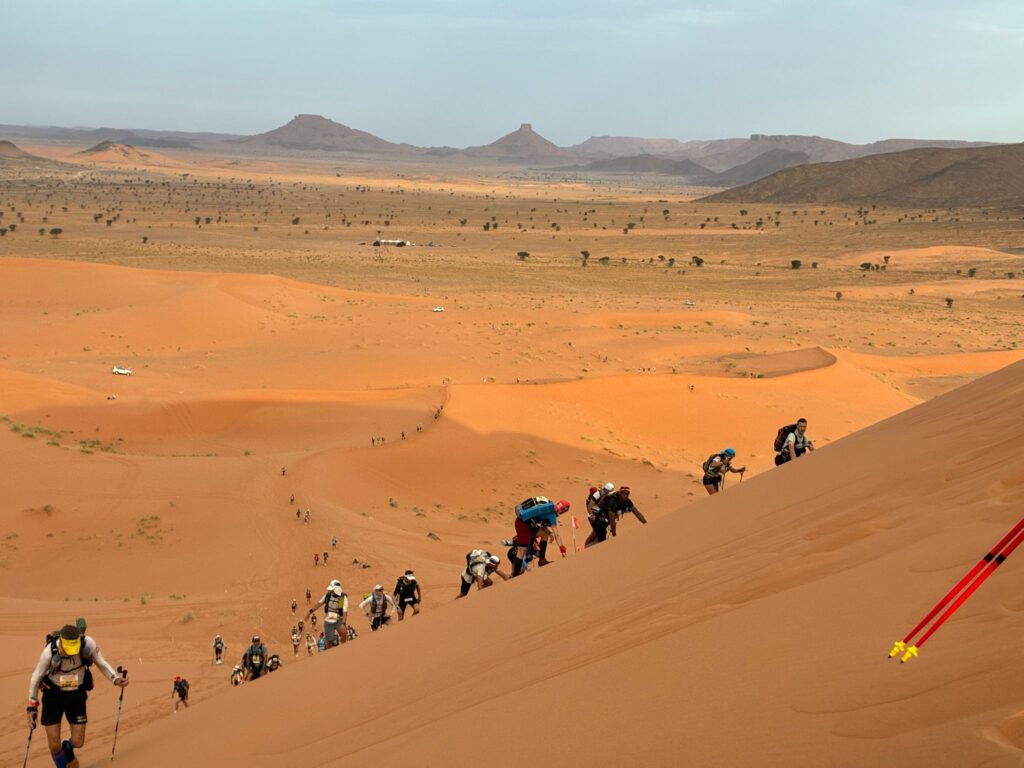
6. Life Design and MDS
“MDS is a life event that includes running. Endurance is everything that you do after the finish line.”
The MDS was a meaningful life investment, even selfish. For two weeks, I pulled the ripcord on family and work to recalibrate and reflect on the architecture of my life through a high-intensity endurance experience. Maybe it’s a function of the circumstance of the time that we live in, but now felt like the perfect time to do that introspective work. In a world where things can feel out of control, looking inward is the best place to source control, approval and security. When I wrote One Life to Lead back in 2021, I wrote it to help myself and others realize that we are the designers of the lives we want to create. But the endeavor is not a “once and done” formula. The act of life design is a constant exploration catalyzed by moments like the MDS that invite reflection.
MDS is an invitation to embrace the fullness of self-discovery. It is at the same time joy and frustration, anguish and accomplishment, setbacks and victory. It is friendship and loneliness, selfishness and gratitude, confidence and anxiety. There is no way to traverse 150 miles across such a harsh landscape without wondering, “Who am I and what the f*ck am I doing out here?” But therein lies the opening of a conversation with that current you, that younger you, and maybe that future you. The context of our lives is crowded out by the circumstances of the moments of our daily grind. The current circumstances of “life activities” tends to take precedence. But every so often, if you’re intentional, you can create the space to redefine your context (how you want to be, independent of the circumstance). That is what the MDS invited me to explore and why it is such a valuable portal to continue the quest of the life that I want to design.
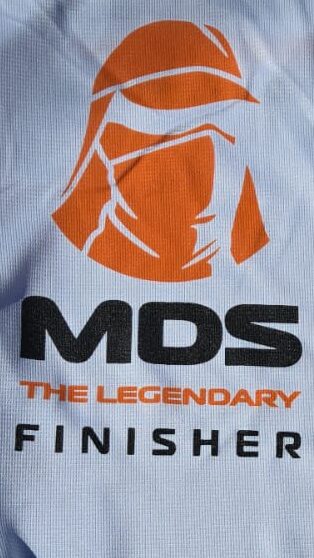
So the 2025 MDS Legendary is in the books. If you want to check out a really awesome video of the event, you can watch it here on YouTube: MDS Legendary 2025. I am so grateful for the experience and opportunity to learn more about my body and my mind. I am reminded that the true endurance event that we are all in is not about a start line and finish line of some endurance race in the Sahara Desert. Rather, endurance is how we show up everyday of our lives when there isn’t a clear start or finish line. It is how we treat ourselves and those we love. It is how we approach our work and how we find energy so that we can achieve our highest and best use. Events like the MDS poke at us to ask the important questions. Courage is living into the answers to those questions.
